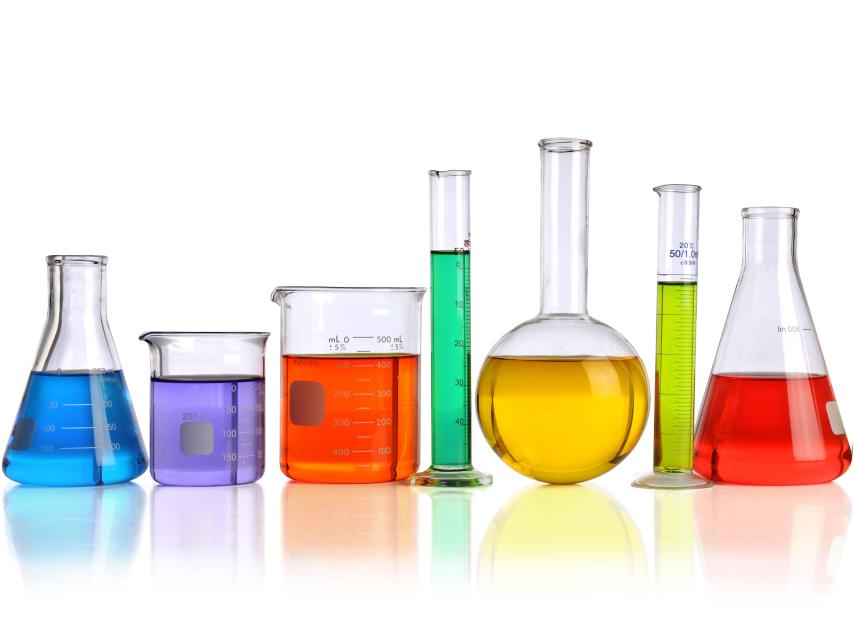Baking Soda Inorganic Content Verification
The process of Baking Soda (sodium bicarbonate) inorganic content verification is crucial for ensuring product purity and compliance with industry standards. Sodium bicarbonate, commonly known as baking soda, is a widely used chemical compound across various sectors such as food, pharmaceuticals, and household cleaning products. Its primary role is to provide leavening properties, act as a pH buffer, and serve as an antacid or cleaning agent.
The inorganic content of sodium bicarbonate primarily comprises sodium ions (Na⁺) and carbonate ions (CO₃²⁻). Any deviation from the expected composition can lead to variations in performance characteristics. For instance, excessive impurities might affect the chemical stability, reactivity, or solubility of the compound, leading to potential quality issues.
Our testing service focuses on verifying the inorganic content by analyzing the elemental composition of sodium bicarbonate using advanced analytical techniques. This process ensures that the product meets the required specifications for purity and consistency. The testing method typically involves several steps, including sample preparation, analysis via spectroscopic or chromatographic methods, and final verification against international standards.
International standards such as ISO 1069-2018 provide guidelines for the chemical composition of baking soda. By adhering to these standards, we ensure our clients receive accurate and reliable results that are consistent with global benchmarks. The testing process also helps in identifying any potential issues related to manufacturing processes or raw material sourcing.
Our team of experts uses state-of-the-art equipment such as Inductively Coupled Plasma Mass Spectrometry (ICP-MS) for precise elemental analysis and X-ray Fluorescence (XRF) spectrometers for rapid screening. These tools enable us to detect even trace amounts of impurities, ensuring that the final product meets stringent quality control requirements.
The importance of this test cannot be overstated, especially in industries where purity is paramount. For example, pharmaceutical companies rely on baking soda as a stabilizer and buffer, while food manufacturers use it for leavening agents. Any deviation from expected specifications could lead to safety concerns or regulatory non-compliance.
In addition to ensuring product quality, verifying the inorganic content of baking soda also supports sustainable manufacturing practices by helping companies monitor their supply chain and raw material sources. This service is particularly valuable for businesses operating under strict environmental regulations where trace elements can have significant impacts on waste management and resource efficiency.
Industry Applications
| Industry | Description of Application |
|---|---|
| Pharma & Biotech | As a buffer and stabilizer in drug formulations. |
| Food & Beverage | Leavening agent and pH balancer in food products. |
| Cleaning Products | Effective cleaning agent with degreasing properties. |
| Bakery & Confectionery | Main ingredient in baking powder formulations. |
| R&D & Quality Assurance | Research and development of new products involving baking soda. |
Why Choose This Test
Choosing our Baking Soda Inorganic Content Verification service offers several advantages. Firstly, it ensures that your product meets the highest quality standards set by international regulations and guidelines like ISO 1069-2018. Secondly, by detecting even trace amounts of impurities, we help you maintain consistent performance across batches. Thirdly, this testing process supports sustainable manufacturing practices by enabling better control over raw material sources.
Our team of experts employs cutting-edge technology to conduct these tests accurately and efficiently. The use of advanced analytical techniques ensures that the results are reliable and can be trusted for decision-making purposes. Additionally, our services cater specifically to your needs, whether you're a small-scale manufacturer or a large corporation.
By choosing us for this service, you not only enhance product quality but also contribute to maintaining consumer trust. In an era where transparency is key in the food and pharmaceutical industries, having reliable test results can help build stronger relationships with customers and stakeholders alike.
International Acceptance and Recognition
The importance of international acceptance and recognition cannot be overstated when it comes to baking soda inorganic content verification. Compliance with global standards ensures that your product is accepted across different markets, thereby expanding your customer base and enhancing brand reputation.
The International Organization for Standardization (ISO) sets the benchmark for quality assurance in many industries, including chemical testing. ISO 1069-2018 specifically addresses the chemical composition of baking soda, providing detailed guidelines on how to conduct this verification accurately. By adhering to these standards, you can ensure that your test results are accepted worldwide.
Recognition from reputable bodies adds credibility to your testing process and enhances trust among stakeholders. This is particularly important for companies operating internationally or dealing with global regulatory requirements. It also helps in maintaining a consistent quality level across different regions, ensuring uniformity in product performance.





